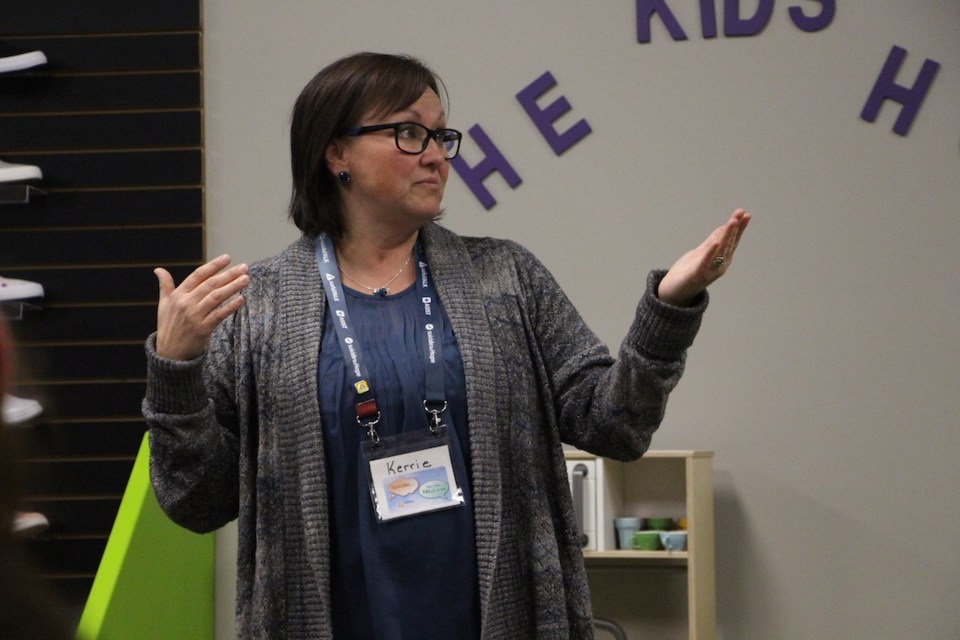People don’t want to talk about suicide. But, when someone they meet is considering it, how are they going to get them to the help they need? The SafeTalk program is about teaching people how to talk about suicide and get people the help they need.
Kerrie Shearer, presenter and councillor at Sacred Heart High School, said that their goal is to help regular people learn about the signs they might see or hear that someone is considering suicide, and the resources that people can use to help that person.
Part of the training is teaching people what they can do when they start to suspect something is wrong. While the course covers examples of conversations where someone says something suspicious, like saying they have a vague solution to a problem or talking about how they won’t need something anymore, it’s about trusting your feelings about people and conversations.
“It would be very difficult to tell what somebody might hear or say, we want to give them the tools, so if something puts up their ‘spidey-senses’ and makes them say ‘I don’t know’ then they have the confidence to ask the question.”
One thing Shearer wanted to get across was that people shouldn’t be afraid to say suicide, that this isn’t going to ‘plant the idea’ in someone’s head that it is something they may do.
“That’s not the case at all, we’re never going to say something that they haven’t already perhaps thought of on their own. Nor have I ever, in all the years of doing my job – I have been at Sacred Heart for almost 20 years now – asking the question has never been the wrong question to ask. Even if it wasn’t in the person’s thoughts, it has never been taken in the wrong way.”
It’s a difficult subject, and Shearer knows many people don’t want to believe suicide could be a problem in their family and larger community, and many people are scared of being responsible for someone who might need help. She hopes that as people take the course, they have the tools they need to deal with the problem as it arises.
“You don’t know who it might be, who may need this skill. You don’t know who needs to hear you say, ‘are you thinking about this?’ You don’t know who needs to feel special at that moment, be heard, and need to tell their story, just to finally get something off their chest. You don’t even know when you create that impact on someone’s life. You just don’t know where you’re going to be. This is that skill we just want to put in someone’s back pocket, nobody knows ever when they’re going to use it or if they’re going to use it. But it’s nice to know you can help if you need to help.”
The program is sponsored by the Elias Giannoulis memorial fund. Giannoulis committed suicide in his early 20s, and his friends decided to do something to improve mental health in Yorkton, starting with organizing a 3 on 3 hockey tournament to raise money. They approached Shearer and Scott Musqua, another councillor at Sacred Heart, about presenting the information to the community.
“This all happened because a group of friends thought, what can we do to help someone not face what we are facing right now, in losing a friend?”
The course is for people 15 and older, and they have reached teachers and students in Sacred Heart High School and Dreambuilders already. They want to get out to people in the community, and the first workshop, in Scrub Hub on May 2, was the first example. They hope that they can reach anyone in the community.
Anyone interested in the training can contact [email protected] or [email protected]

.JPG;w=120;h=80;mode=crop)


